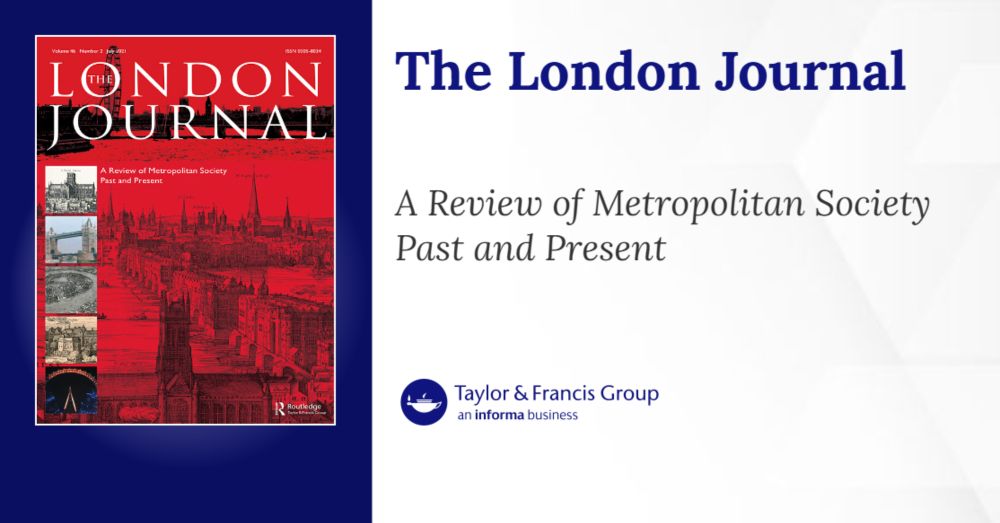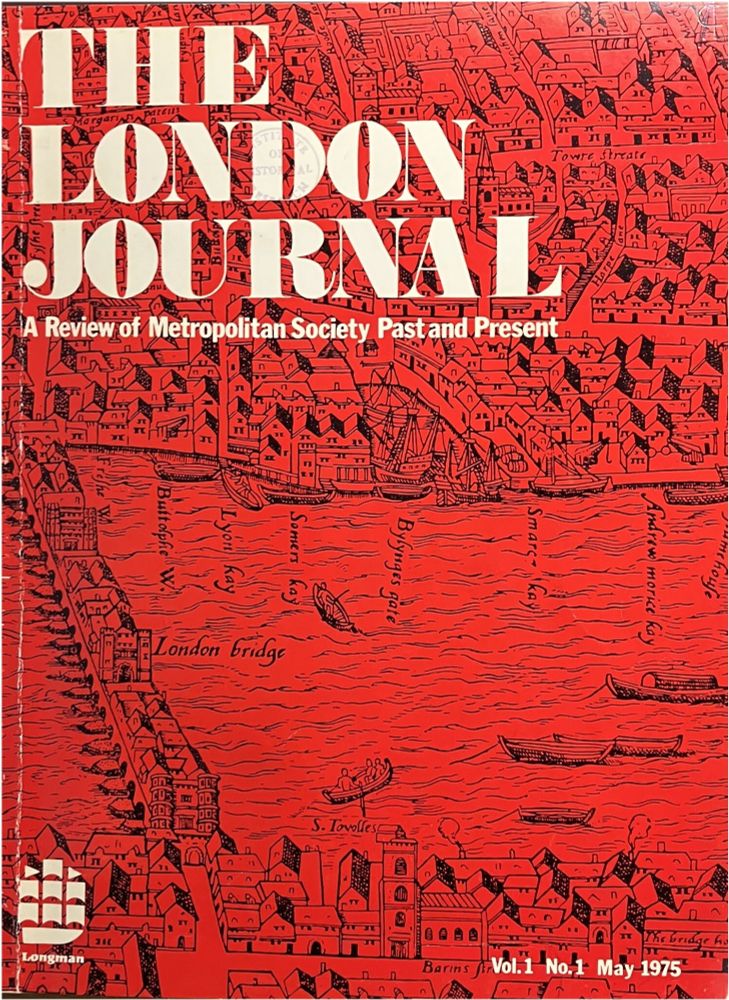The London Journal
@thelondonjournal.bsky.social
1.8K followers
600 following
140 posts
A journal embracing all aspects of metropolitan society past & present | Published by Taylor & Francis for London Journal Trust | Articles & Special Issue proposals welcome | thelondonjournal.org
Posts
Media
Videos
Starter Packs
Reposted by The London Journal
Reposted by The London Journal
Reposted by The London Journal
Reposted by The London Journal
Reposted by The London Journal
Reposted by The London Journal
Reposted by The London Journal
Reposted by The London Journal
Reposted by The London Journal
Reposted by The London Journal
Reposted by The London Journal
Reposted by The London Journal



